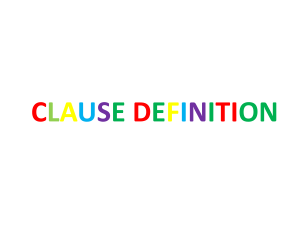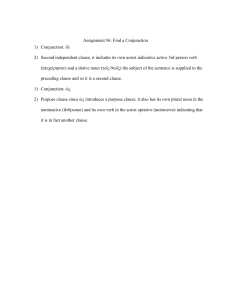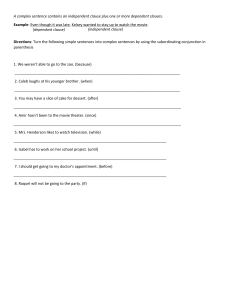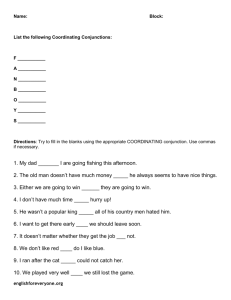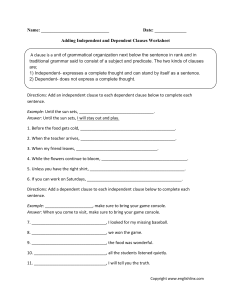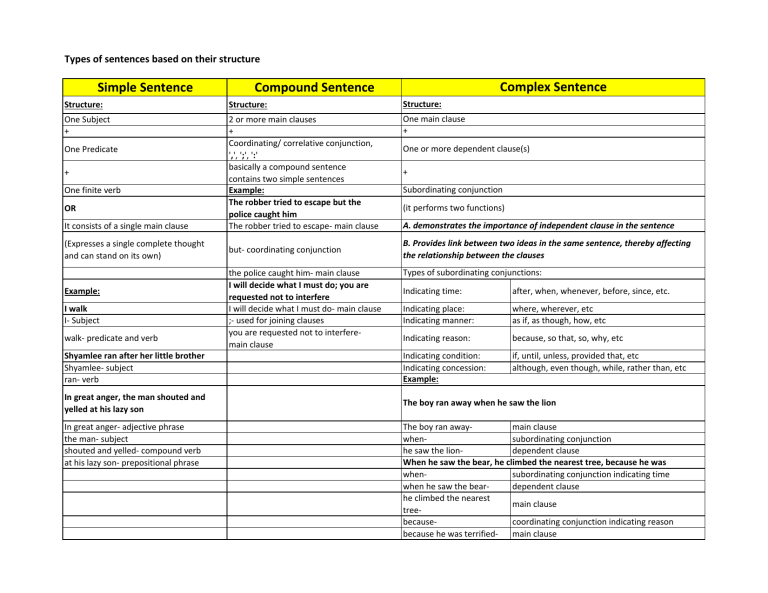
Types of sentences based on their structure Simple Sentence Complex Sentence Compound Sentence Structure: Structure: Structure: One Subject + 2 or more main clauses + Coordinating/ correlative conjunction, ',', ';', ':' basically a compound sentence contains two simple sentences Example: The robber tried to escape but the police caught him The robber tried to escape- main clause One main clause + One Predicate + One finite verb OR It consists of a single main clause (Expresses a single complete thought and can stand on its own) Example: but- coordinating conjunction the police caught him- main clause I will decide what I must do; you are requested not to interfere I will decide what I must do- main clause ;- used for joining clauses you are requested not to interferemain clause One or more dependent clause(s) + Subordinating conjunction (it performs two functions) A. demonstrates the importance of independent clause in the sentence B. Provides link between two ideas in the same sentence, thereby affecting the relationship between the clauses Types of subordinating conjunctions: Indicating time: after, when, whenever, before, since, etc. Indicating place: Indicating manner: where, wherever, etc as if, as though, how, etc Indicating reason: because, so that, so, why, etc Shyamlee ran after her little brother Shyamlee- subject ran- verb Indicating condition: Indicating concession: Example: if, until, unless, provided that, etc although, even though, while, rather than, etc In great anger, the man shouted and yelled at his lazy son The boy ran away when he saw the lion I walk I- Subject walk- predicate and verb In great anger- adjective phrase the man- subject shouted and yelled- compound verb at his lazy son- prepositional phrase The boy ran awaymain clause whensubordinating conjunction he saw the liondependent clause When he saw the bear, he climbed the nearest tree, because he was whensubordinating conjunction indicating time when he saw the beardependent clause he climbed the nearest main clause treebecausecoordinating conjunction indicating reason because he was terrifiedmain clause

